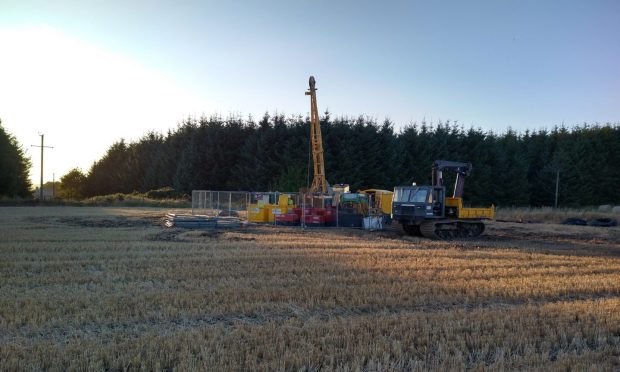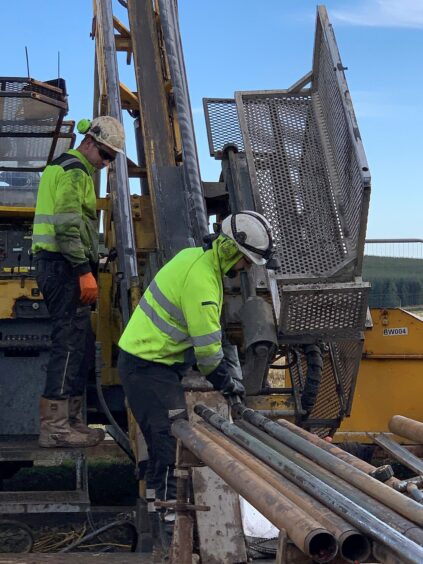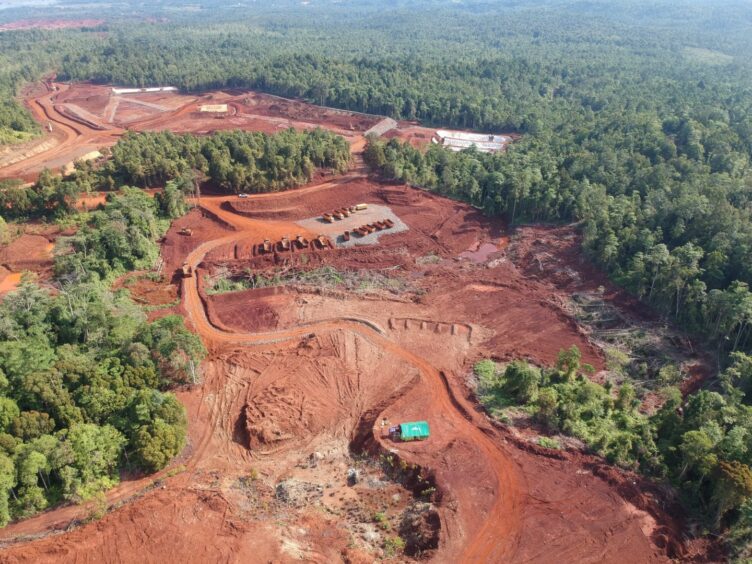Four-hundred-and-seventy-million-year-old rock under an Aberdeenshire barley field could hold the key to a successful energy transition in the UK.
A recently completed second phase of drilling on farmland at Arthrath, four miles north of Ellon, will yield important clues about the viability of commercial production of base metals in the north-east.
Potential economic boon
It could pave the way for a valuable new industry and jobs for the region.
Aberdeen Minerals is the small Ellon firm focused on exploring the potential for nickel, copper and cobalt production in Aberdeenshire.
It has collected nearly 7,000ft of core samples to date and already encountered “significant” deposits of base metals.
We think we have a really exciting business model that has the potential to demonstrate there is something here that has a viable future.”
Fraser Gardiner, the company’s chief executive, stressed activities are still at the early exploratory stage and there is much work to do.
But he added: “We think we have a really exciting business model that has the potential to demonstrate there is something here that has a viable future.
“These are essential raw materials for the energy transition.
“Current supplies do not reflect the longer term outlook.”
Next year the firm aims to get more drilling under way. It plans to collect samples that would total more than three miles if laid end to end.
Meanwhile, the company has appointed well-kent north-east businessman Roy Buchan as a non-executive director.
Mr Buchan’s career spans more than four decades in the energy, technology and infrastructure sectors. The 58-year-old is a former chief operations officer at North Sea oil and gas firm Ithaca Energy and currently chairman of the board at Port of Aberdeen.
Aberdeen Minerals’ latest drilling phase was completed at the start of this month.
It was part of an eight-month feasibility study funded by the UK Government, which is keen to develop domestic supplies of base metals important to the energy transition.
Nickel and cobalt in particular will be in growing demand from battery-makers as electric vehicles (EVs) and other low-carbon technologies become the norm.
We have completed our latest drilling programme at the Arthrath Nickel-Copper-Cobalt Project in Aberdeenshire.
This is the first stage of our innovative mineral processing study, 70% funded by the UK Government's Automotive Transformation Fund @innovateuk @theapcuk pic.twitter.com/682hWdl5fv
— Aberdeen Minerals Limited (@AberdeenMin) November 6, 2023
Aberdeen Minerals was established in 2018 with the aim of tapping into Scottish supplies.
Its drilling programme follows helicopter surveys of parts of Aberdeenshire last year.
The north-east’s first airborne geophysical survey scoured land around Ellon, Balmedie, New Deer, Methlick and Maud.
Earlier this year Aberdeen Minerals announced it had raised about £1.1 million from new and existing UK and international investors to further its work exploring for and evaluating nickel-copper sulphides.
Government cash being used to evaluate processing methods
The UK Government grant of £294,000 was awarded through the Automotive Transformation Fund, set up to support large-scale industrialisation and the transition to net-zero. Aberdeen Minerals is using its funding to evaluate innovative and environmentally sustainable methods to process the minerals it finds at Arthrath.
Currently, base metals like nickel, cobalt and copper must be imported using carbon-intensive, overseas supply chains.
Deposits in Aberdeeenshire were found in the 1960s but remain undeveloped and underexplored.
Aberdeen Minerals has secured exclusive land access and exploration agreements with landowners in the hope of kick-starting UK production. The drilling at Arthrath was on a fallow barley field.
The company has already invested about £2.5 million in pursuit of its long-term ambitions and expects to spend another £3-5m over the next two years. It is casting its net wide for new funds.
Why do we need these metals?
Cathode battery production in the UK currently requires about 3,000 tons of nickel and 1,000t of cobalt annually. In 2030 the industry will likely need around 52,000t of nickel – an increase of more than 1,600% – and 9,000t of cobalt (up 800%).
A petrol car today typically uses 49lbs of copper and no nickel. EVs need 117lbs of copper and 88lbs of nickel.
About 60% of the world’s nickel demand is met by Indonesia, the Philippines and Russia.
Indonesia dominates new production projects, but is suffering an impact to its rich biodeversity as a result.
The Democratic Republic of the Congo supplies much of the world’s cobalt, with its mines often relying on child labour. Global demand for this metal is expected to double by 2030.
It is expected an industry built around the type of base metals known to be present in Aberdeenshire would be much more ethically responsible and environment-friendly.





Conversation